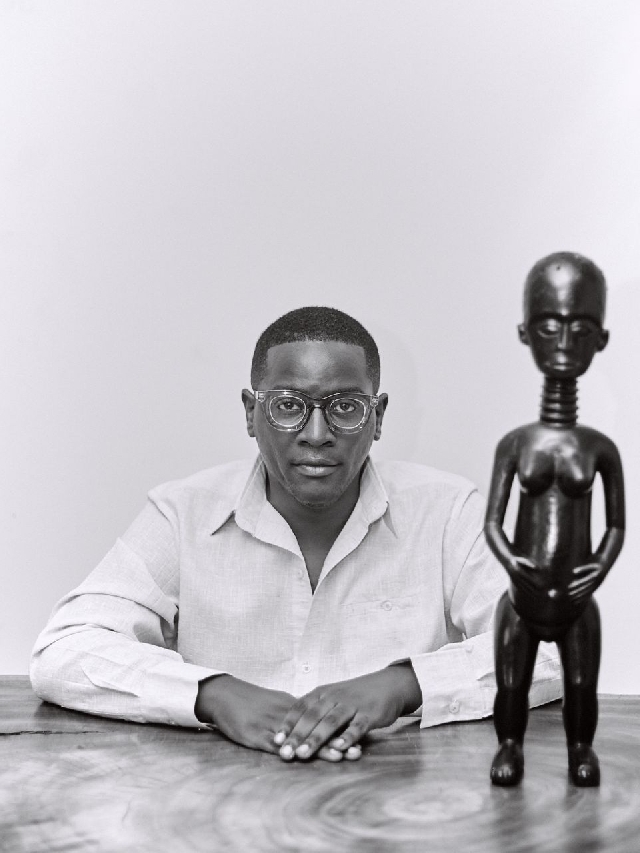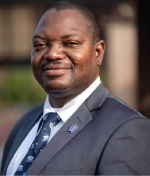Why V. L. K. Djokoto could be Ghana’s future
 V. L. K. Djokoto
V. L. K. Djokoto
Ghana’s voters are tired of choosing between bad and worse. Especially young people — who make up 60% of the country — want something different. They don’t care about old political fights. They want leaders who can actually get things done.
V. L. K. Djokoto is 30 years old. He’s built his career outside the usual political circles. He’s a writer, businessman, media owner, lawyer, and development expert. He saw early on that Ghana’s next leaders would need to be different from what we’ve had before.
Around the world, a new kind of young leader is emerging. They’re smart, practical, work in both business and government, and aren’t interested in tribal politics. They have good qualifications but, more importantly, they know how to get things done.
Djokoto fits this description perfectly. He studied law at Swansea University and City Law School, then worked in Ghana’s courts and with the military. He runs D. K. T. Djokoto & Co., a family business started in 1950 that manages properties in Cantonments, Airport Residential, Ridge, and Airport Hills — some of Accra’s best areas. He advises the Anlo Rural Bank, helping connect banking services to rural communities. He’s worked with Ghana Investment Promotion Centre, Trans-Sahara Industries, Hero Motors, and major media companies.
Running a 75-year-old family business teaches you things politicians need to know: how to balance different people’s needs, manage money through good and bad times, plan for the long term whilst handling today’s problems. These are exactly the skills Ghana’s government needs but doesn’t have.
He’s written policy papers about regional development and manufacturing. But he’s also written a book called “Revolution” and a play called “Afro Gbede.” This makes him both a thinker and an artist — rare for someone in politics. It means he understands that culture isn’t just nice to have — it’s central to who we are as a nation.
In many countries, the old labels of left and right don’t mean much anymore. What matters now is whether you’re forward-thinking or stuck in the past, whether you get things done or just talk.
In Ghana, the NDC-NPP divide is becoming meaningless. Both parties have been in power. Both have failed. Both have overseen corruption and broken promises. The differences between them feel fake.
Djokoto seems to understand this. He owns and edits the Accra Evening News — the same newspaper Kwame Nkrumah used to push for independence. But he’s turned it into what he calls a “post-partisan cultural journal.” That’s smart: respect our history whilst moving beyond tribal politics.
In 2020, he led communications for Professor Jane Naana Opoku-Agyemang’s campaign, showing he can work within party structures when needed. But everything else he does shows he’s independent. He’s connected enough to be taken seriously, but independent enough to be fresh.
Smart governments know that culture matters. Music, film, fashion, art — these aren’t just entertainment. They create jobs and give countries influence.
Ghana isn’t using this properly. Our creative industries could do much more, especially now that Afrobeats is huge worldwide and African films are getting international recognition. But our government treats culture like decoration.
Djokoto thinks differently. He’s funded films shown at Cannes, organised major art shows, and written plays about Ghana’s revolutionary history. He says his mission is “mobilising Ghanaians through African music, literature and art.” That’s strategy, not hobby.
If Ghana wants to lead the region, we need leaders who understand that culture has real value. Africa’s creative economy is one of our biggest advantages.
Djokoto is 30. Ghana’s median age is 21. Six out of ten Ghanaians are under 35. But our politicians are mostly over 60, and they think being young is a bad thing.
This creates a problem: the people making decisions won’t have to live with the consequences for long. The young people who will live with these decisions for the next 40 or 50 years have almost no say.
Age doesn’t automatically make you wise. What matters is preparation and understanding today’s challenges. Djokoto has prepared seriously: managing big assets, advising banks, negotiating with international companies, working in legal settings, running campaigns, building media platforms. He’s not some influencer looking for attention — he’s someone who’s systematically built real skills.
The question isn’t whether 30 is too young for senior leadership. It’s whether Ghana can afford to be run only by 60-year-olds when most Ghanaians are under 35.
National leadership means being visible but not having impossible expectations placed on you. It means real responsibilities — chairing boards, leading projects, representing Ghana abroad — whilst staying above daily political fights.
For Djokoto, the challenge is proving what he can do whilst building support for future influence.
Think about any presidential candidate building a winning team. Put Djokoto together with someone who has experience and established connections. The combination works: experience plus new ideas, tradition plus change. We’re not asking you to choose between experience and fresh thinking. We’re offering both.
His work with Professor Opoku-Agyemang’s 2020 campaign already showed he can work well in these partnerships.
Ghana’s political establishments will fight hard against someone like Djokoto. The gatekeepers don’t want someone who claims to be qualified without spending decades in party service. They’ll whisper that he’s too inexperienced, that Ghana isn’t “ready.”
This resistance actually proves the case for change. Old establishments never think it’s time for new people. They judge by the wrong measures — not whether you’re capable, but whether you fit into their system. Their discomfort with Djokoto shows how outdated they are. They’re protecting a system that benefits them, not Ghana.
But voters are starting to ask different questions. Not “How long have you been in politics?” but “Can you actually do the job?” Not “Did you climb the party ladder?” but “Do you understand debt restructuring and digital policy?” Not “Are you a familiar face?” but “Can you offer something better than what we’ve had?”
Ghana will either become a West African hub or fall permanently behind other countries. The difference will be the quality of our leaders.
Debt problems, youth unemployment, climate change, digital transformation — these need smart, fresh thinking.
V. L. K. Djokoto shows that Ghana can produce the kind of leaders we need. Not a miracle worker — our problems are too big for any one person — but a serious person with serious preparation.
At 30, with good education, proven achievements, and genuine post-partisan vision, Djokoto might be exactly what Ghana needs. Whether we choose him is the big question.
The old guard won’t make it easy. But sometimes systems become so broken that people are willing to try something that seems impossible — until suddenly it isn’t.
The conversation about Ghana’s next generation of leaders has started. Djokoto’s name comes up a lot — not because he’s seeking attention, but because serious people facing serious problems know that fresh talent matters more than political seniority. What role he plays depends on whether Ghana’s political system can actually accept the kind of leader it claims to want.
Source: Kweku Boampong
Trending Features

Did God choose you? Rethinking love, marriage and the choices we make
15:20
Nii Ayikoi Otoo: Lawyer, statesman and leading voice for Ga-Dangme advocacy
20:07
‘It is not as long as you think’
19:20
“When grief met purpose: Andrews Kwame Perprem’s defiant stand for Ghana’s forgotten mining communities”
09:26




